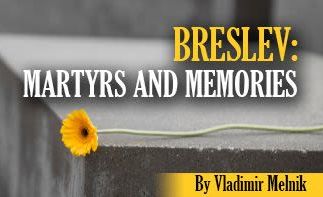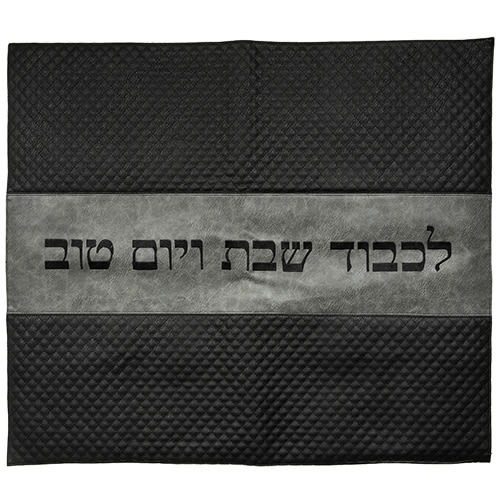
A Lesson Taken From A Thief
Many families refused to even open the door. Those that did open the door hardly let him get in a word. Cutting him off in mid-sentence, they hurriedly tossed...

Reb Nachum was a true chassid of the Baal Shem Tov, and so when his rebbe told him to go to the town of Brodt, he immediately set out on his mission. It was only when he saw the lights of Brodt shining ahead in the distance that Reb Nachum began to slow his pace and gloomily contemplate the enormity of the task that lay before him.
The Baal Shem Tov's words to Reb Nachum had been brief and to the point: go knock on the doors of the wealthy citizens of the town and raise 10,000 rubles.
"Ten thousand rubles!" Reb Nachum said with a sigh, as he wearily trudged down the road.
The money was certainly being raised for a good cause, since it would be used to marry off poor brides who lived in the area. But the fact remained that even for the best of fundraisers and the worthiest of causes, 10,000 rubles was a tremendous sum of money to raise.
Reb Nachum could feel his gloom becoming deeper and stronger, which was certainly not appropriate behavior for a chassid of the Baal Shem Tov. So rather than fill his mind with these worrisome thoughts, he decided to concentrate instead on how to perform the Baal Shem Tov’s request. When he reached Brodt, he quickly found an excellent inn to lodge at – meaning one where the innkeeper was happy to share his knowledge of the wealthier residents of the town – and by the time he went to bed Reb Nachum had in hand a long list of potential benefactors.
The next morning the chassid rose early to say his prayers so that he could devote the better part of the day to his task. Yet when the last word of the prayer service had ended, Reb Nachum's gloom returned and a sigh escaped from his lips.
What was the real cause of the chassid's sorrow?
It was not fear of the task before him, because Reb Nachum was an excellent fundraiser. When it came to pleading the cause of those less fortunate, no one was more articulate than Reb Nachum. When it came to reminding the wealthy of their duty to provide for the poor, no one was more persuasive than Reb Nachum. And when it came to cajoling the benefactor to give “just a little bit more,” no one was more persistent than Reb Nachum.
Yet when it came to knocking on that first door of the morning – no one was more reluctant than Reb Nachum. The reason for his reluctance was simple, because despite his obvious talents, Reb Nachum intensely disliked his work.
How he wished that he could spend his days in prayer and learning, instead of tramping through the streets of some strange town asking for money from people he didn’t even know. If only the Baal Shem Tov would listen to his plea and choose someone else to perform this work. But what could he do? The Baal Shem Tov had reminded him many a time that he had no choice but to send Reb Nachum, since Reb Nachum was quite simply the best person for the job.
So as Reb Nachum reluctantly said a silent good-bye to the synagogue, he tried to console himself with positive thoughts.
"At least I'll be helping the good people of Brodt perform the mitzvah of giving tzedaka," he told himself. "And if just 10 families will give me 1,000 rubles apiece, I can complete my job in one day. Even if I must knock on 20 doors and only receive 500 rubles from each family, I can still be home well in time for Shabbat.
"Surely," he reasoned, as he made his way to the wealthy section of town, "this is not an impossible goal. If the Baal Shem Tov asked me to raise 10,000 rubles in Brodt, there must be 10,000 rubles in Brodt waiting to be raised. It is only a question of finding them – and why shouldn't I be allowed to find them sooner, rather than later."
However, a vast sum of rubles was not to be found in the first home he approached, since that wealthy family handed over only 10 of them. The second family was no better. When he gained entry into the third home, Reb Nachum pleaded and cried and entreated and wept – and received only 5 rubles for his efforts. By the end of the week he had visited almost half of the names on his list and raised a grand total of 100 rubles. Needless to say, he was in a state of despair.
He resigned himself to staying in Brodt for Shabbat. Being a chassid of the Baal Shem Tov, he also resolved that next week things would go better. But they didn’t.
Many families refused to even open the door. Those that did open the door hardly let him get in a word. Cutting him off in mid-sentence, they hurriedly tossed him a few rubles before shutting the door in his face. By the middle of the week, he was still short of his goal by some 9,830 rubles.
Seeing how things were going, Reb Nachum decided there was no point in spending yet another Shabbat away from home. He packed the few rubles he had collected with the rest of his belongings and set out for the road to Mezhibuzh.
He had not traveled far, though, when the weight of his sorrows began to press down on him so heavily that he could hardly lift his feet. He decided to sit down to rest under the shade of a nearby tree, and there he poured out his heart to God.
“Ribbono Shel Olam,” he pleaded, “Master of the Universe, you know how much I hate to collect money from strangers – how I would rather spend my time learning and praying. At least before, when I was asked to perform this task, You blessed me with success and I managed to raise a great deal of money for charity. But what do I have to show for these past two weeks of my life? Nothing, except my frustration and despair!
“If I could only understand why I have to waste my life in this way,” Reb Nachum cried out in anguish, his words trailing off into a heartfelt sigh.
At that moment a small cloud of dust appeared a few miles down the road. Soon a band of men came into view: two burly police officers dragging along a prisoner – a Jew – between them. Usually in this situation, since no one in his right mind is in a hurry to go to jail, a prisoner drags his feet slowly, as if to delay his impeding fate. But this prisoner was different. Reb Nachum noticed that the man was dancing and singing as if he didn’t have a care in the world.
Reb Nachum could not contain his curiosity, and so he called out to the prisoner, “Who are you?”
“I’m Jacoby the thief,” the man cheerfully replied.
“Why are you so happy?” Reb Nachum asked.
“Because I’m the greatest thief in Brodt. There’s no better thief than me,” Jacoby said while doing a little jig and nimbly clicking his heels in mid-air.
“If you’re such a great thief,” Reb Nachum retorted, “how is it that you got caught? Maybe you’re not so great after all.”
“That’s ridiculous,” said Jacoby. “Even the best thief in the world gets caught every once in a while.”
“But surely you'll stop being a thief once you are freed from prison,” said Reb Nachum.
“What?” Jacoby stopped dead in his tracks and opened his eyes wide in shock. “Stop being a thief?”
Jacoby looked at Reb Nachum intently – so intently that Reb Nachum began to grow uncomfortable under the man’s stare.
“Don’t you know,” said Jacoby, “that when you’re really good at something, you’re not supposed to give it up. That would be showing disrespect for your Creator, Who gave you your talents in the first place. And doing this thing you're good at may be exactly the reason why you are here in this world.”
The police officers gave Jacoby a shove and told him to move along. The thief once more began to dance and sing, and after a few moments the trio disappeared from view.
Reb Nachum took the thief’s words to heart. Instead of continuing on to Mezhibuzh, he quickly retraced his steps and within an hour he was back in Brodt. He dropped his bag off at the inn, but instead of stopping to unpack his things, he took out his list of wealthy families and quickly walked to the next home on the list.
With a joyful spirit, he knocked on the front door – and by the end of the day he had collected the remaining 9,830 rubles.
When he arrived in Mezhibuzh, Reb Nachum immediately rushed to the Baal Shem Tov to tell him all that had happened. But before he could even begin his tale, the Baal Shem Tov stopped him.
“Nu, Reb Nachum, tell me something," the Baal Shem Tov said. "How does Elijah the Prophet look when he is dancing between two policemen?”
Reb Nachum looked at his rebbe in astonishment. As he handed over the 10,000 rubles, the chassid knew there was no reason to say even a single word.
***
Libi Astaire is the author of Choose Light! Chassidic Tales for Chanukah, Rosh Hashanah, Sukkos, Passover & Shavuos; Breakfast with Rav Zusha and Other Stories to Wake Up Your Soul; and the award-winning Jewish Regency Mystery Series. Visit her website for more information about these and other books.












Tell us what you think!
Thank you for your comment!
It will be published after approval by the Editor.